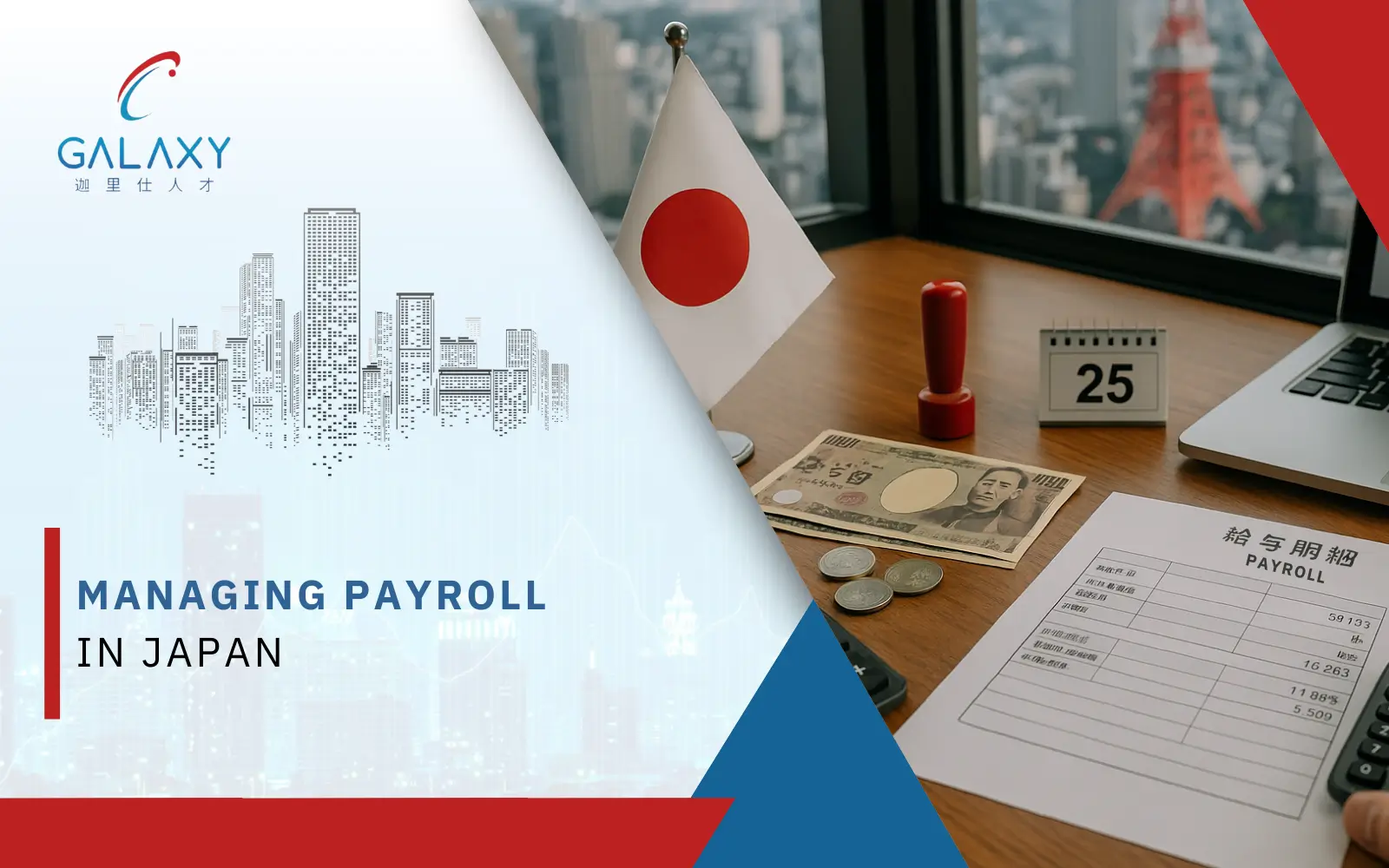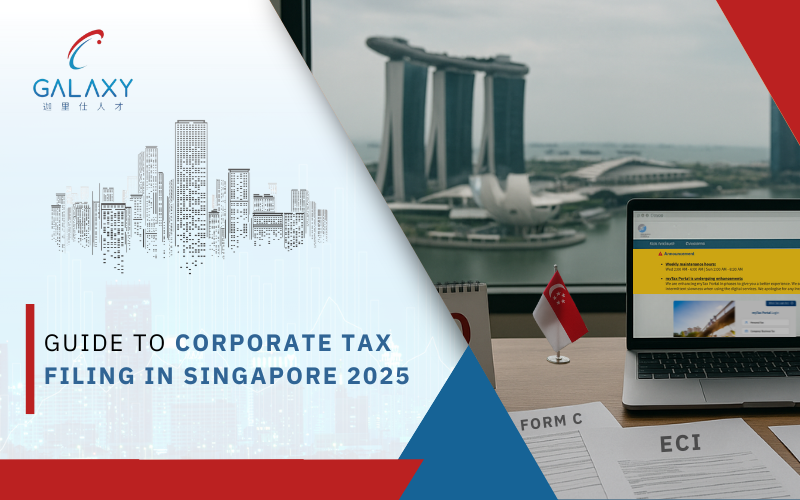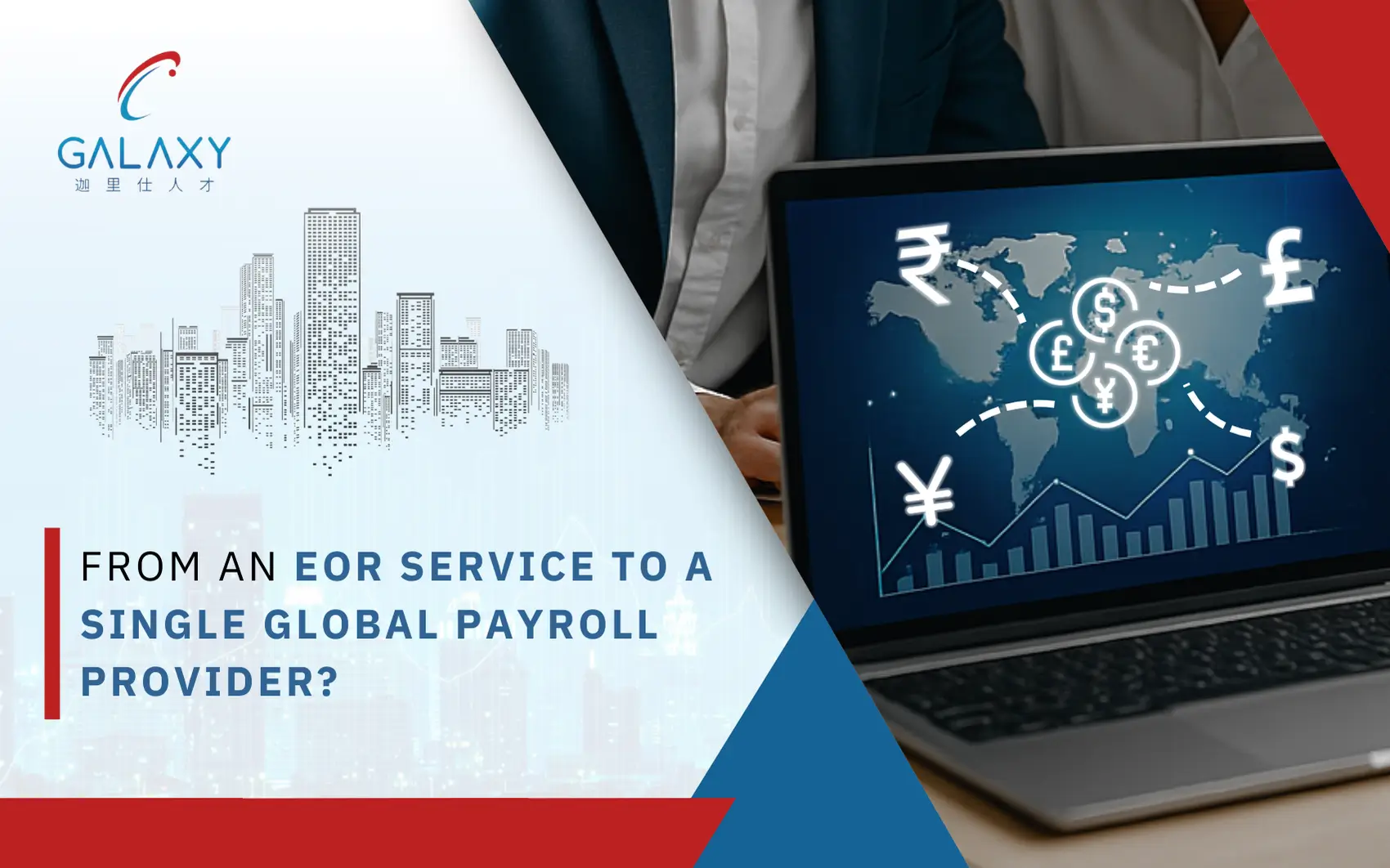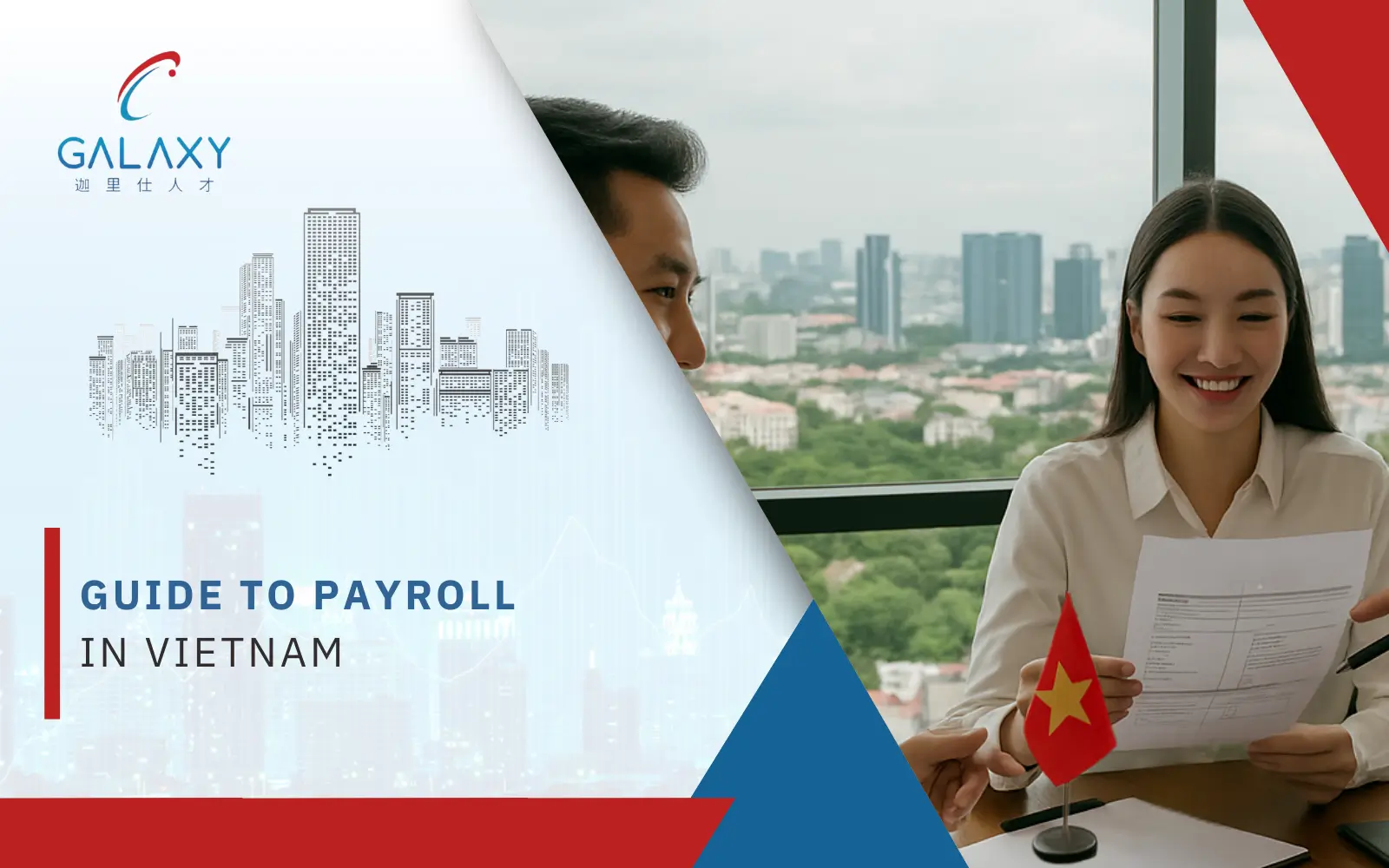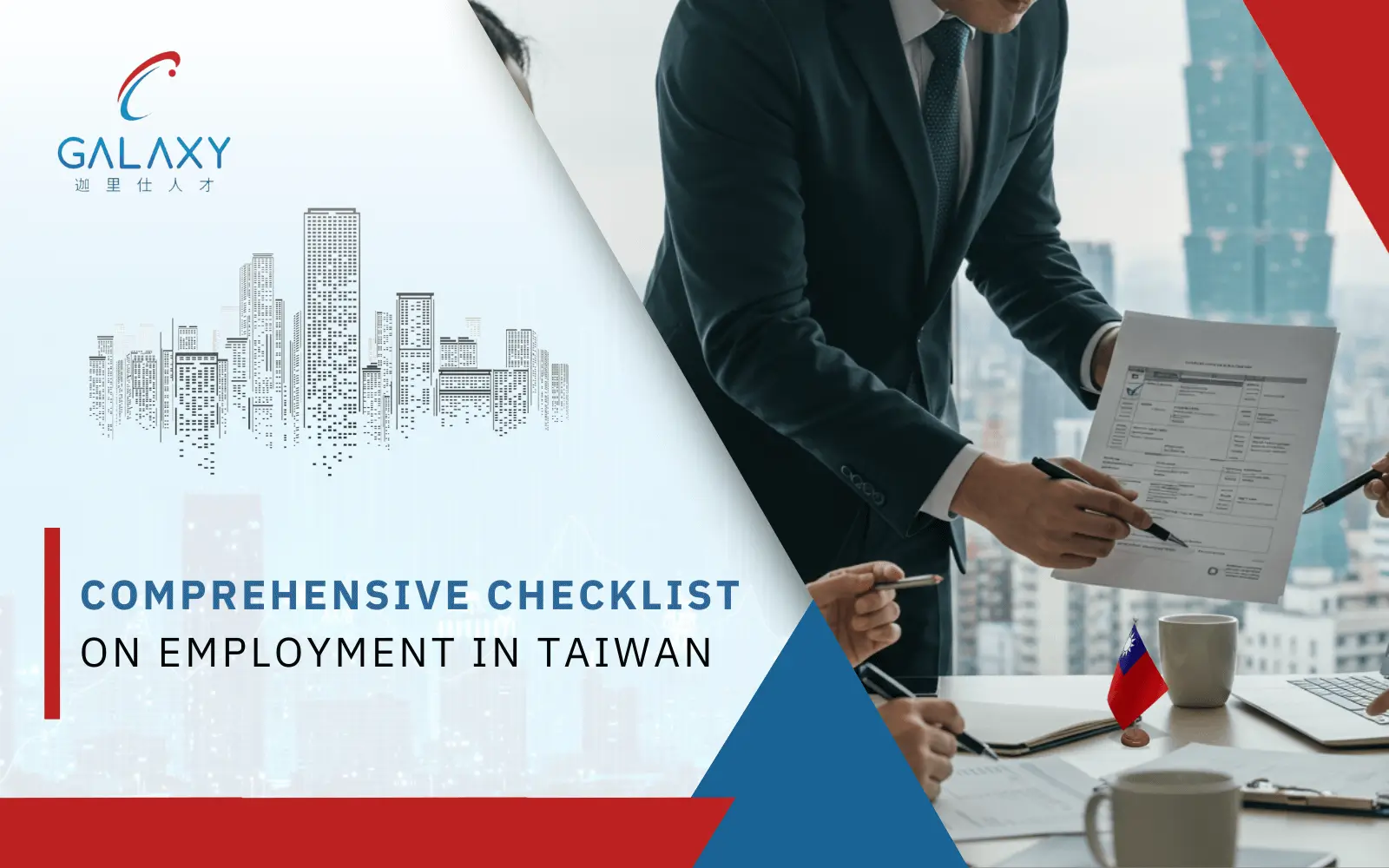Guide to Payroll in Taiwan
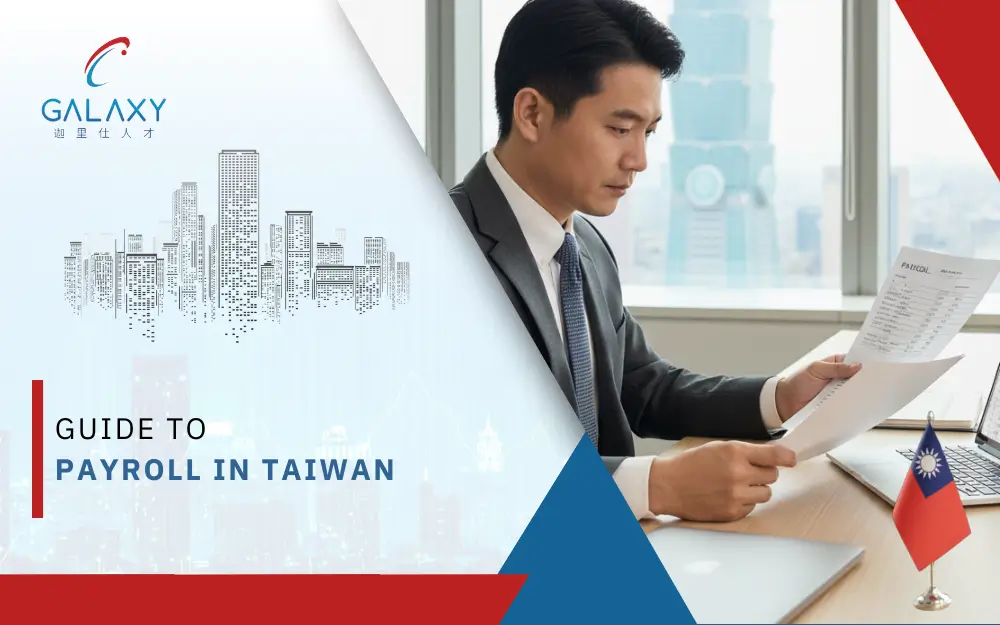
For international companies operating in Taiwan, payroll is a critical intersection of compliance, culture, and employee trust. It goes far beyond salary processing, requiring strict adherence to labour laws, precise tax reporting, and timely social security contributions. Effective payroll management not only fulfils regulatory obligations but also strengthens organisational credibility and workforce engagement.
Taiwan’s strong economy, highly educated talent pool, and strategic position in Asia make it an appealing hub for expansion. Yet, navigating its payroll framework without local expertise risks compliance breaches, unexpected costs, and diminished employee morale. This guide examines the strategic role of payroll in Taiwan , highlighting key compliance requirements, wage benchmarks, remote work considerations, and how to select the right payroll partner for a scalable, legally sound framework.
Table Of Content
- How Does Taiwan Payroll Strengthen Global Competitiveness?
- What Are the Key Trends and Compliance Rules for the Remote Workforce in Taiwan?
- What Is the Average Salary in Taiwan?
- What Is Taiwan’s Minimum Wage and What Does It Mean for Employers?
- Basics of Employment Contracts in Taiwan
- Key Considerations When Choosing a Payroll Services Partner in Taiwan
- Conclusion: Building a Scalable and Compliant Payroll Strategy in Taiwan
- Frequently Asked Questions
How Does Taiwan Payroll Strengthen Global Competitiveness?
Taiwan has evolved far beyond its reputation as a manufacturing powerhouse. Over the past decade, it has transformed into an innovation-driven economy with thriving technology, financial services, healthcare, and creative sectors. For businesses entering or expanding in Taiwan, managing payroll involves tasks that extend beyond administrative responsibilities. It plays a crucial role in keeping employees happy, staying compliant with the law, and supporting business growth.
When payroll is done well, it can give companies a competitive edge—making it easier to attract top talent, comply with regulations smoothly, and expand operations with confidence. Here’s why it matters:
1. Attracting and Retaining Top Talent
- Professionals in Taiwan’s competitive industries, such as advanced engineering, R&D, and semiconductor manufacturing, demand more than just attractive compensation; they place a premium on timely, accurate, and consistent salary payments.
- Efficient payroll systems demonstrate to employees that the company values their contributions and upholds high professional standards.
- Prompt, error-free salary disbursements foster trust, improve morale, and help reduce employee turnover.
- Transparent communication of pay and benefits—through clear payslips or user-friendly employee portals—enhances the employer brand.
- This clarity can be a deciding factor when top candidates are evaluating multiple job offers.
2. Ensuring Full Compliance
Taxation, insurance, and pension contributions are all covered by Taiwan’s comprehensive and rigorously enforced labour laws.
Payroll administrators must:
- Calculate, withhold, and remit personal income tax accurately each month.
- Correctly contribute to labour insurance, health insurance, and pension funds.
- Meet all statutory payment and filing deadlines.
Non-compliance risks financial penalties, back payments, and reputational harm, which can hinder recruitment and partnerships.
A robust and compliant payroll process demonstrates operational integrity—particularly vital in regulated sectors such as fintech and pharmaceuticals.
3. Enabling Rapid Market Scaling
Taiwan’s fast-moving market presents sudden opportunities—such as branch expansions, product launches, or seasonal demand spikes.
A flexible payroll framework enables companies to:
- Onboard new employees quickly without overwhelming HR teams.
- Adapt to shifting workforce needs, from permanent staff to contractors and remote workers.
- Manage payroll efficiently across multiple locations within Taiwan.
What Are the Key Trends and Compliance Rules for the Remote Workforce in Taiwan?
Selecting the right payroll services in Taiwan can significantly strengthen business operations. Beyond saving time and minimising administrative errors, the right provider ensures compliance with evolving local regulations and delivers insights that reflect the realities of doing business in Taiwan. The most effective partners go beyond number-crunching to provide strategic value.
Here are some essential things to keep in mind when you’re looking for payroll partners:
Local Expertise
In-depth understanding of Taiwan’s complex and evolving labour and tax laws ensures compliance and avoids penalties.
Scalability
A partner that can adapt services as your workforce grows, maintains continuity and efficiency.
Technology Integration
Automation and seamless integration with HR/accounting systems reduce errors and streamline operations.
Multilingual & Regional Support
Providers with multilingual capabilities and regional experience help manage cross-border payroll and cultural nuances.
What Is the Average Salary in Taiwan?
Organisations seeking to recruit and retain quality employees in the competitive contemporary market need to understand the compensation scenario in Taiwan, including the average salary in Taiwan. It assists both employees and job seekers in forming realistic expectations about compensation, thereby fostering transparency and trust.
According to National Statistics, the Republic of China (Taiwan), official labour market data provides a credible benchmark for assessing current salary trends across industries, as shown in the following table.
| Category | Amount (NTD) | Equivalent (USD) |
|---|---|---|
| Average Regular Earnings | NT$47,796 | ~$1,440 |
| Average Total Earnings | NT$113,846 | ~$3,400 |
| Median Monthly Salary | NT$113,846 | ~$1,140 |
These figures represent the overall earnings across industry and service sectors, including base salary, bonuses, and overtime pay.
Key Takeaways for Employers and Employees
Salary Range:
The gap between median and average salaries shows variation in earnings, highlighting the need for competitive pay structures.
Total Rewards Matter:
Bonuses and overtime significantly enhance overall income, making total compensation a vital factor in attracting and retaining talent.
Market Awareness:
Salary benchmarks help employees set realistic expectations and negotiate effectively.
Sector Variations:
Earnings differ by industry, with tech and finance generally offering higher pay than manufacturing or services.
Strategic Alignment:
For multinationals, matching local salary trends is essential for cost control and talent acquisition.
Compliance:
Following local salary standards ensures legal compliance and promotes fair employment practices.
What Is Minimum Wage in Taiwan, and What Does It Mean for Employers?
The minimum wage in Taiwan is regularly reviewed and adjusted by the government to reflect economic growth and shifts in the cost of living. These adjustments aim to provide fair compensation for workers while supporting sustainable business operations. Effective January 1, 2025, the minimum wage rates have been updated as follows:
| Wage Type | Amount (NTD) | Equivalent (USD) |
|---|---|---|
| Monthly Minimum | NT$28,590 | ~$870 |
| Hourly Minimum | NT$190 | ~$5.77 |
What Employers Should Keep in Mind
The upcoming changes to Taiwan’s minimum wage in 2025 have real implications for employers:
Staying Compliant
Updating payroll systems to reflect the new rates isn’t just a legal requirement—it shows employees and stakeholders that the company operates with integrity.
Managing Labour Costs
An increase in base wages can affect overall payroll expenses. Employers should revisit their budgets to ensure they can absorb the changes without putting pressure on other areas of the business.
Supporting Retention and Hiring
Fair, competitive pay isn’t just about meeting regulations—it’s a signal to current and future employees that they’re valued. That matters when building a loyal, motivated team.
Getting Payroll Right
Mistakes in wage calculations, especially with overtime or benefits, can quickly erode trust. Accuracy helps maintain confidence and smooth operations.
Planning Ahead
Understanding how wage changes impact the broader workforce enables leaders to make more informed, forward-looking decisions about compensation and hiring.
By proactively addressing these factors, employers can navigate minimum wage changes smoothly while supporting their business goals and employee well-being.
Basics of Employment Contracts in Taiwan
An employment contract in Taiwan is more than just a formality—it’s the foundation of a clear, legally compliant relationship between the employer and employee. Under Taiwanese labour laws, a written contract is strongly recommended for all employment arrangements, whether the role is full-time, part-time, or project-based.
A well-structured contract ensures that both parties understand their rights, responsibilities, and entitlements from the outset. For companies expanding or hiring in Taiwan, especially those engaging talent through cross-border arrangements, this clarity is critical in avoiding disputes, meeting compliance obligations, and building trust with local hires.
Key elements typically included in a Taiwan employment contract:
- Job Title and Scope of Work – A precise description of the role and responsibilities, avoiding ambiguity.
- Compensation and Benefits – Salary amount, payment schedule, bonuses, allowances, and any in-kind benefits.
- Working Hours and Rest Days – Alignment with Taiwan’s Labour Standards Act, including overtime rules and public holidays.
- Leave Entitlements – Annual leave, sick leave, parental leave, and other statutory entitlements.
- Probation Period – Duration and conditions for confirmation of employment.
- Termination and Notice Period – Legal grounds for ending the contract and the required notice for each party.
- Confidentiality and Non-Compete Clauses – Protection of sensitive business information, especially for foreign-invested companies entering the Taiwan market.
Why it matters:
A well-drafted, compliant contract creates clarity, protects both parties, and supports long-term working relationships. It’s also an essential step in meeting Taiwan’s labour law requirements while maintaining a positive workplace culture.
How Payroll in Taiwan Works: Taxes, Social Security, and Processes
| Payroll Element | What It Is | How It Works in Taiwan | Why It’s Important |
|---|---|---|---|
| Income Tax | Tax on what employees earn | Based on a progressive rate (5%–40%) depending on annual income. Employers deduct it from salaries each month and send it to the tax office. | Keeps the business compliant and avoids last-minute tax issues. |
| Labor Insurance | Safety net for workers | Covers workplace injuries, maternity, disability, and death benefits. The employer, employee, and government share contributions. | Helps employees stay protected during unexpected situations. |
| Employment Insurance | Support during unemployment | Provides temporary income and job search assistance to employees who lose their jobs. | Gives financial stability while finding new work. |
| National Health Insurance | Taiwan’s public healthcare system | All employees must be enrolled. Costs are split among the employer, the employee, and the government. | Ensures affordable medical care when needed. |
| Labor Pension | Retirement savings plan | Employers contribute at least 6% of an employee’s monthly salary into a personal pension account. | Builds a secure income for retirement. |
| Payroll Cycle | When salaries are paid | Usually, by the end of the month, this includes wages, overtime, and allowances. | Maintains consistent and predictable pay for employees. |
| Payslips | Salary breakdown | Must clearly show wages, deductions, contributions, and taxes. | Creates transparency and avoids confusion. |
| Year-End Bonus | Extra pay during Lunar New Year | Many employers give a bonus equal to around one month’s salary. | Motivates staff and matches local workplace traditions. |
Key Considerations When Choosing a Payroll Partner in Taiwan
Finding the right payroll partner in Taiwan isn’t just about getting payslips out on time; it’s about ensuring accurate and timely payroll processing. It’s about having someone who understands the rules, protects your data, and keeps things running smoothly so your team gets paid correctly and on schedule—without the headaches.
| What to Check | What It Means in Practice | Why It Helps |
|---|---|---|
| ✔ Knows Local Laws | Understands Taiwan’s tax rules, labour insurance, and health insurance — and stays updated when laws change. | Keeps payroll compliant and avoids costly mistakes. |
| ✔ Gets It Right, Every Time | Processes salaries accurately and pays on time. | Builds trust with employees and maintains high morale. |
| ✔ Keeps Data Safe | Uses secure systems and maintains strict confidentiality. | Protects sensitive salary and personal information. |
| ✔ Works Well with HR | Can connect payroll to hiring, onboarding, and benefits systems. | Reduces administrative work and eliminates duplicate data entry. |
| ✔ Grows with You | Can handle payroll, whether you’re adding five people or fifty. | Makes scaling up (or down) hassle-free. |
| ✔ Clear on Costs | Offers straightforward, transparent pricing with no surprises. | Helps with budgeting and cost planning. |
| ✔ Understands the Local Culture | Speaks the language, knows local customs, and can provide quick support. | Makes communication smoother and problem-solving faster. |
Conclusion: Building a Scalable and Compliant Payroll Strategy in Taiwan
A well-managed Payroll in Taiwan is the foundation for business success. From setting competitive salaries based on the average salary in Taiwan to ensuring compliance with the minimum wage in Taiwan, from drafting airtight employment contracts to managing a geographically dispersed remote workforce, every detail matters.
Partnering with an expert like Galaxy Group gives businesses peace of mind. With our tailored payroll services in Taiwan, we handle compliance, efficiency, and scalability, allowing you to focus on growth.
Starting in Taiwan or growing an existing business here means investing in a payroll strategy that is flexible and compliant, something that helps protect the company, keeps employees happy, and sets the stage for lasting success.
Stay Compliant with Taiwan’s Payroll Regulations
Engage trusted experts to handle payroll, wage updates, and compliance in Taiwan and ensure seamless operations in 2025.
FAQ’S
What is the minimum wage in Taiwan?
The monthly minimum wage in Taiwan is NT$27,470, with an hourly rate of NT$183, as of 2025.
What is the average salary in Taiwan?
On average, salaries in Taiwan range from NT$40,000 to NT$60,000 per month, depending on the industry and experience level.
Are written employment contracts mandatory in Taiwan?
Yes. Employers must provide a written contract detailing job terms, wages, and benefits to ensure compliance and clarity.
How often is payroll processed in Taiwan?
Most companies pay salaries monthly, but pay frequency can vary based on the employment contract.
Can foreign companies hire remote workers in Taiwan?
Yes. Businesses can hire remote talent in Taiwan, but must comply with local labour laws, payroll, and tax regulations.

